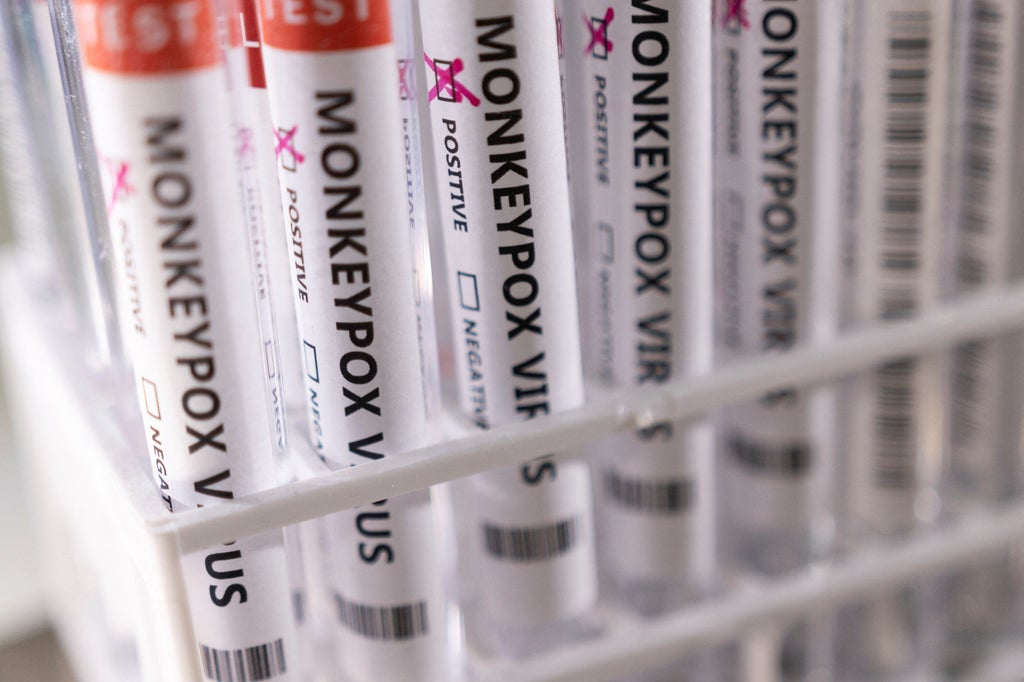
Charities and campaign groups have warned against the stigmatisation of gay and bisexual people during the monkeypox outbreak.
To date, a total of 71 cases have been detected in the UK, a notable proportion of which have been identified among gay and bisexual men, according to the UK Health Security Agency.
UKHSA and charities have stressed the need to raise awareness of the spread of monkeypox among these groups, but concern has also been raised over “lazy, homophobic tropes” that have subsequently emerged around the viral infection.
Sasha Misra, associate director of communications and campaigns at Stonewall, said there has been “increasingly sensationalist media coverage” of the monkeypox outbreak that “invites the reader to make the link between the disease and the LGBTQ+ community.”
She added: “This is both irresponsible and dangerous. Reporting of this fashion serves only to stigmatise the LGBTQ+ community, and risks the wider population dropping their guard against the virus.
“The truth is that while a number of the confirmed cases in the UK have been found in gay and bi men, anyone can pass on the disease, regardless of their sexual orientation. Monkeypox isn’t an STI – it is passed on by close contact and we all need to be vigilant.”
None of the UK’s 71 cases have been identified in Wales and Northern Ireland. One infection has been detected in Scotland, while 70 have been reported across England. The majority of these are believed to be centred in London.
Although there is no evidence to suggest the infection is spreading as a STI, the close contact that comes with sexual intercourse is thought to be responsible for the sudden transmission of cases.
The fact that infections are being seen in so many different countries suggests that monkeypox, a viral disease, may have been silently spreading for some time, according to the World Health Organisation.
Dr David Heymann, who formerly headed WHO’s emergencies department, described the outbreak of cases as “a random event” that might be explained by two recent mass raves in Europe.
Health authorities in Spain, where a majority of the world’s monkeypox cases have been detected to date, are also investigating possible links between a recent Gay Pride event in the Canary Islands, which drew some 80,000 people, and cases at a Madrid sauna.
The Elton John AIDS Foundation said people need to be “mindful about the language we use” when discussing the outbreak and avoid stigmatising certain communities.
Anne Aslett, CEO of the charity said: “Stigma and blame has been a driver of HIV for four decades. As new viruses emerge, we must look to the lessons from our past and commit to battling stigma. A great first step towards that is being mindful about the language we use.”
Aidsmap, a UK-based charity, said the news of an infectious disease chiefly affecting gay and bisexual men “has stirred memories of the early days of the HIV epidemic”.
Its executive director, Matthew Hodson, said: “As with HIV, there have been lazy, homophobic tropes in the ensuing discussion. As with HIV, monkeypox is just a virus, without the capacity to make moral judgements about how it is transmitted, or to who.”
However, unlike HIV, he stressed that monkeypox is usually mild and clears without treatment. Most infected with the virus typically recover in a matter of week.
Symptoms include fever, headache, muscle aches, backache, swollen lymph nodes, chills and exhaustion. A rash can develop, often beginning on the face, which then spreads to other parts of the body including the genitals.
The first case identified in the UK was in a person who had returned from Nigeria, but other cases are unrelated to travel.
People who come into contact with infected individuals are being offered a vaccine that is typically used to protect against smallpox, which is caused by a similar virus.
This strategy, known as ring vaccination, includes health care workers, sexual partners and housemates. High-risk contacts are also being asked to isolate at home for three weeks, as the virus has a long incubation time and it can take several weeks for symptoms to emerge.
Terrence Higgins Trust, having supported AIDS patients since its inception in the early 1980s, has been working UKHSA to tap into its community networks and raise awareness among gay and bisexual people over the spread of monkeypox.
Alex Sparrowhawk, from the health improvement team at Terrence Higgins Trust, said: “We absolutely don’t want to stigmatise gay and bisexual men and know the importance of being proactive in guarding against that.
“But we also know that to date a disproportionate number of monkeypox cases are among gay and bisexual men and want to use our expertise to play our role in reaching this community.”







